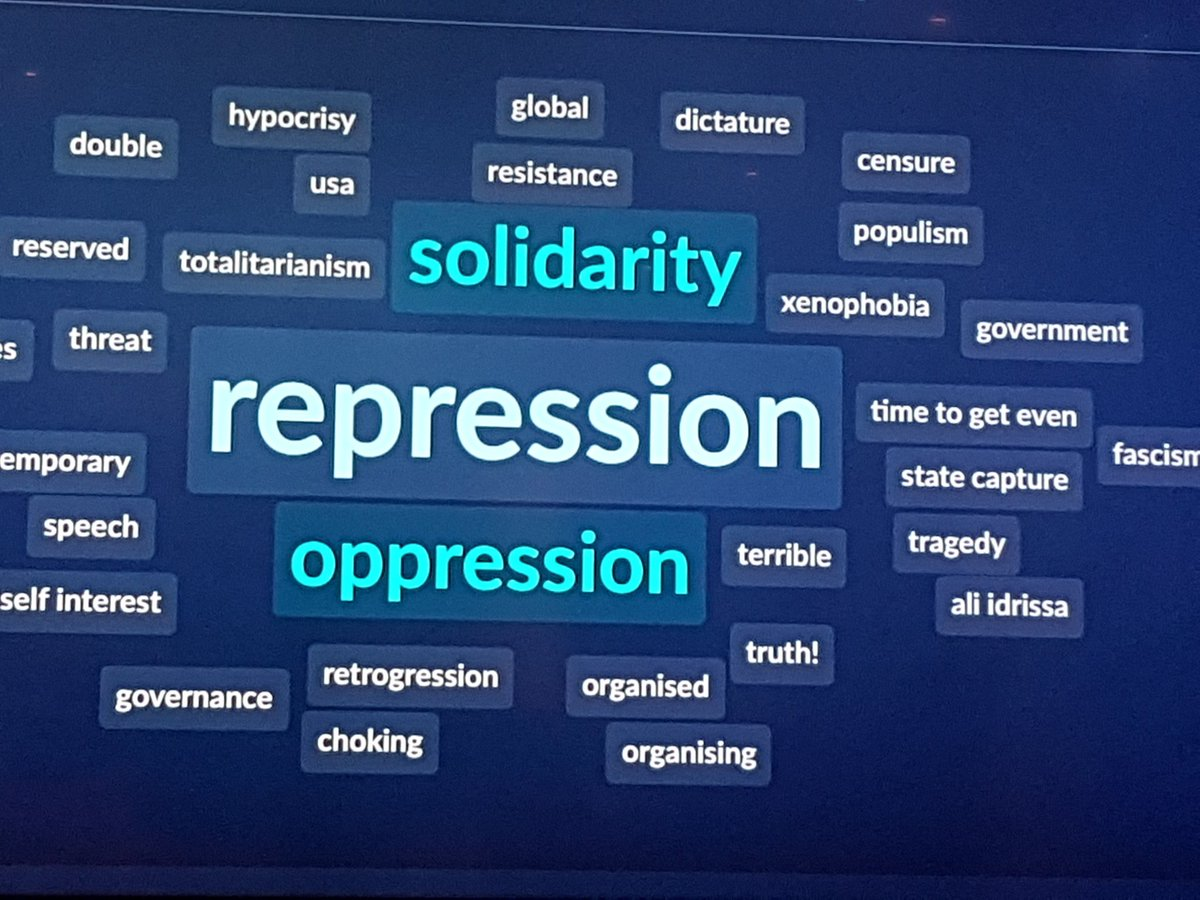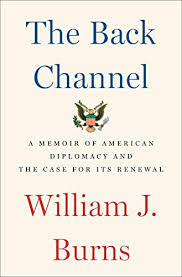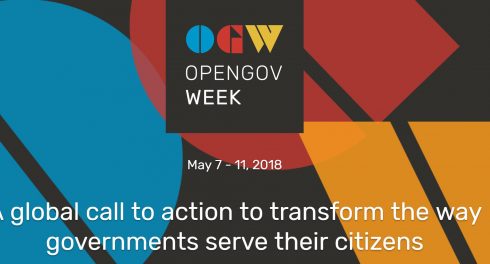Highlights:
- Taxes, taxes, taxes – all the rest is bullsh*&!
- My data is me, i.am my data
- And the winner is…
- Should there be such a thing as the proud philanthrojournalist?
- Closing civic space = repression
- A mix of paradigm shifts
- TAI Spotlight: From Luminate’s new strategy to more inclusive grant making
In case you missed it…
Taxes, taxes, taxes – all the rest is bullsh*&!
 Photo: Pixabay
Photo: Pixabay
Having sat in many conversations on how to get tax issues on the public radar, perhaps the secret all along was plain speak? Or maybe it was just a matter of timing? Either way, we were happy to see Rutger Bregman’s comments go viral (who is he? Find out here.) It’s fun to read reactions to Bregman alongside David Lewis’ exploration of whether and how public finance might save democracy, drawing on examples of capture and resistance among South Africa’s fiscal institutions. (Part of our ongoing Fiscal Futures series with International Budget Partnership and Carnegie Endowment).
Though couched in the language of the international bureaucrat, a new OECD policy note may prove just as radical as Rutger or David. In an admirably brief 3 pages, the authors propose a way forward for handling tax in a digital globalized economy that distills inputs of 264 delegates and 95 jurisdictions. Does it signal the death knell of arms-length transfer pricing? Yes, argues Alex Cobham in his thread, who would likely be more skeptical of another new OECD document, this time revealing progress made in addressing harmful tax practices under the Base Erosion and Profit Shifting (BEPS) project.
Fairer international tax rules could help Sub-Saharan Africa bring in more revenue in time, which should be welcome news to Brahima Sangafowa Coulibaly who is rightly concerned that the “challenge of sustainable financing for Africa’s development has not yet been fundamentally addressed.” In the meantime, tax authorities in the region may simply want to hire more women. Last week we noted women might need to lead solutions to man-made inequities, and a new study of Uganda’s revenue authority – one of the few to have been employing large numbers of women for years – suggests they improve organizational performance.
For those sniffing for revenues from natural resources, a new write up of community-level work in Indonesia should offer some inspiration. For more global data needs, check out the revamped interface for the Government Revenue Dataset. Easily jump from country to country and dig into country profiles via the new GRD Explorer.
My data is me, i.am my data
Sticking with data, Will.i.am gets in on the debate arguing that individuals should get compensated for the use of the data they own (He might want to read Martin Tisne’s piece on the challenges of data ownership in practice featured back in December). Meanwhile, big tech firms are starting to see some consequence of violations of data privacy and rights. Is a 50m euro fine for Google for GDPR violations in Europe – just the tip of the iceberg?
Who can we trust to steward our data? The UK will be supporting experiments with data trusts to help tackle global challenges, such as combating the illegal wildlife trade. Further reinforcement might come from a $50m commitment from Rockefeller and Mastercard Foundations to strengthen data science for social change.
You might also want to check out nesta’s database of global governance activities directed at artificial intelligence and machine learning.
What is the next step for AI technologies? MIT Technology Review analysed 16,625 papers to figure out where AI is headed next – seems the era of deep learning is coming to an end. This finding reveals three major trends: a machine learning paradigm, a neural-network boom, and the rise of reinforcement learning.
And the winner is…
It’s award seasons for the movies, which means we are also entering index season for the governance wonk. Transparency International has kicked things off in earnest with the latest edition of the Corruption Perceptions Index. The average score (from 1 to 100) this year? A less than inspiring 43.

Photo: Transparency International
Nigeria scores 27. Ideas for boosting that number next year may lie in a review of how public engagement can curb corruption (timely with an election in coming days), and in a new country corruption taxonomy.
Elsewhere, the Norwegian Government has promised to continue helping Latin America and the Caribbean countries curb corruption and implement pro-transparency reforms through its Transparency Fund grant.
More broadly, anyone keen on evaluating the causal mechanisms through which OGP promotes open government? Join their Webinars on Feb 11 and 14 to share with them your input to strengthen the Terms of Reference.
Should there be such a thing as the proud philanthrojournalist?
We worry about whether journalists are beholden to their owners’ political agendas, but what about the agendas of philanthropists? With more funders (including TAI members) scaling up support for media, and with journalists increasingly dependent on benefactors as ad revenue dries up, it’s important to be aware of unintended consequences of this trend internationally. Matthew Ingram ruminates on the foundation funding changes on how journalism gets done while Martin Scott, Mel Bunce, and Kate Wright argue it is already changing the boundaries of journalism.
On a separate note, some inspiration for investigative journalists doing fact-checking of election results. Check out International Journalists Network’s guidelines for WhatsApp posts and next steps for fact-checking.”
Closing civic space = repression
If asked to reduce or define closing civic space in one word, what would it be? According to those extractives transparency advocates gathered at the Publish What You Pay Global Assembly in Dakar, the answer was clear and sark – “repression.” Perhaps they’ve been reading our blog on retiring the generic phrase and will be intrigued by Deborah Doane’s response as to why we need more talk about ‘closing civic space’.

Those same Publish What You Pay attendees may want to dig into a new study from IDS suggesting that information disclosure must link to government reputation for accountability to be possible.
Amid the worries in Brazil, over the government’s approach to civil society could there be some good news? Paula Fabiani argues yes, given approval of the Equity Funds Act in Brazil that enables philanthropic endowment funds and could encourage new contributions to support social and environmental causes.
Essential Listening
 What does civic engagement look like on Tumblr? Listen to Victoria McCullough.
What does civic engagement look like on Tumblr? Listen to Victoria McCullough.
A mix of paradigm shifts
Most funders (including TAI members) are now at least considering, if not actively engaging in participatory grant making, namely working with grantees as agents of change in their communities rather than simply as beneficiaries of aid. Samantha Rennie and Cullagh Warnock make a case for how this approach helped them in movement building and brought a sense of shared endeavor in their Justice and Equality Fund. Read alongside Ryan Schlegel’s case for foundations moving beyond listening to actively sharing their power with the communities they serve.
Long read of the week:

The Back Channel: A memoir of American diplomacy and the case for its renewal by William J. Burns
An analysis of lasting importance of diplomacy.
TAI spotlight
An evolving strategy for changing times | Luminate Group
Stephen King and Paige Nicol share Luminate’s first four-year strategic plan which summaries their new approach and expanded focus of global work.
Making grant making process more accessible and inclusive | Ford Foundation
Carly Benkov, Catherine Townsend, and Megan Morrison outline how they will work to align their systems and technology with their values of inclusion and accessibility.
Film making for social change | Luminate Group
TAI is a champion for better storytelling, and so was delighted to read why Luminate are partnering with Sundance Institute.
We are excited to welcome Mavra Zehra to the TAI team. Mavra is an Atlas Corps Fellow from Pakistan. Welcome, Mavra!

Calls: Proposals, papers, speakers and course invites
- Co-Create the 6th OGP Global Summit Agenda – February 6
- New Media Ventures 2019 open call – February 11
- OECD and OGP Call for Innovative Open Government Cases – February 12
- Open Heroines Call for Applications for Travel Grants to OGP Summit 2019 – February 14
- Engaging with Civil Society in Belarus Call for Proposals – March 7
On the calendar
- Get to Know GrantStation – Feb 5, 2019
- Grant Trends and Common Mistakes: Make Your 2019 Applications Shine! – Feb 6, 2019
- Resilient Democracy – a strong and diverse civil society – Feb 6, 2019 (Brussels, Belgium)
- Early Market Engagement for a Multi-donor Funded Evaluation of OGP – Feb 11, 2019
- Early Market Engagement for a Multi-donor Funded Evaluation of OGP – Feb 14, 2019
- Data on Purpose Conference – February 19-20 (Stanford, CA)
- Story Movements 2019 – March 1 – 2, 2019 (Washington, DC)
- Open Data Day – March 2, 2019
- The Surprising Power of Liberating Structures – March 11 – 12, 2019 (Seattle, Washington)
- Open Gov Week – March 11 -17, 2019
- The Liberating Structures global gathering – March 13 -15, 2019 (Seattle, Washington, USA)
- TICTec Research Conference – March 19-20, 2019 (Paris, France)
- OECD Global Anti-Corruption and Integrity Forum – March 20-21 (Paris, France)
- The CEP Conference – May 7-9, 2019 (Minneapolis, USA)
- Csv, conf, v4 – May 8-9, 2019 (Eliot Centre, Portland)
- Collective Impact Forum Convening – May 14-16, 2019 (Chicago, USA)
- 2019 Open Government Partnership Global Summit – May 29-31, 2019 (Ottawa, Canada)
- RightsCon Tunis – June 11-14, 2019 (Tunis, Tunisia)
- Global Conference on Transparency Research – June 26 – 27, 2019 (Rio de Janeiro, Brazil)
- Tax Justice Network Conference 2019 – July 2 -3, 2019 (City, University of London, UK)
- Global Symposium (COPGS) on Citizenship, Governance, and Accountability in Health – October 15-18, 2019 (New Delhi, India)


